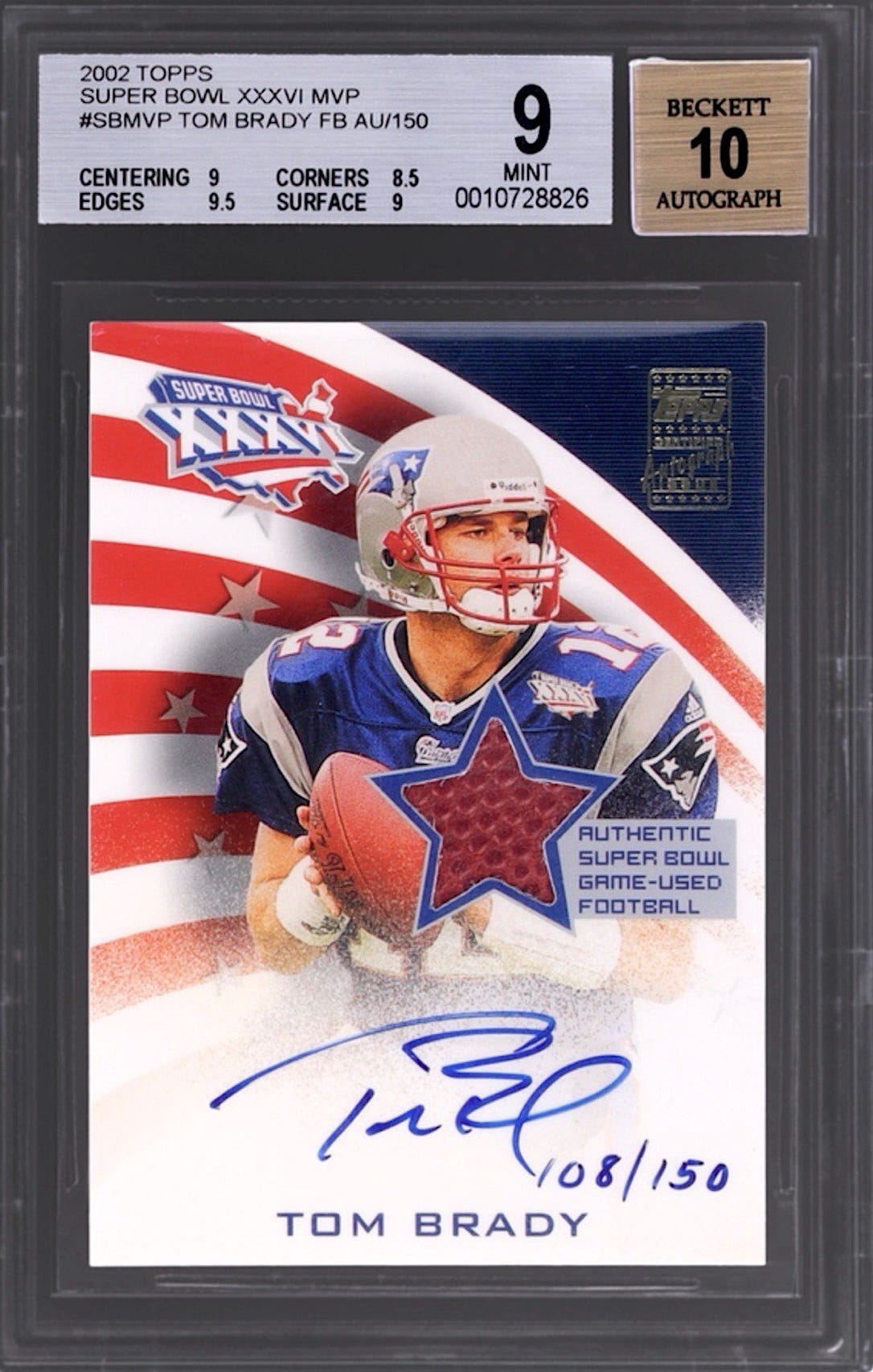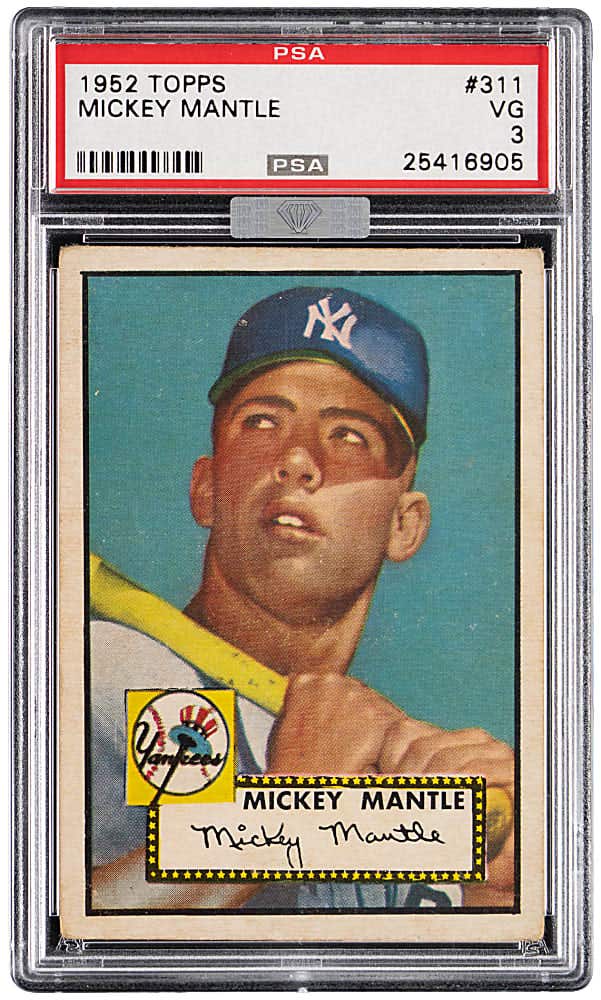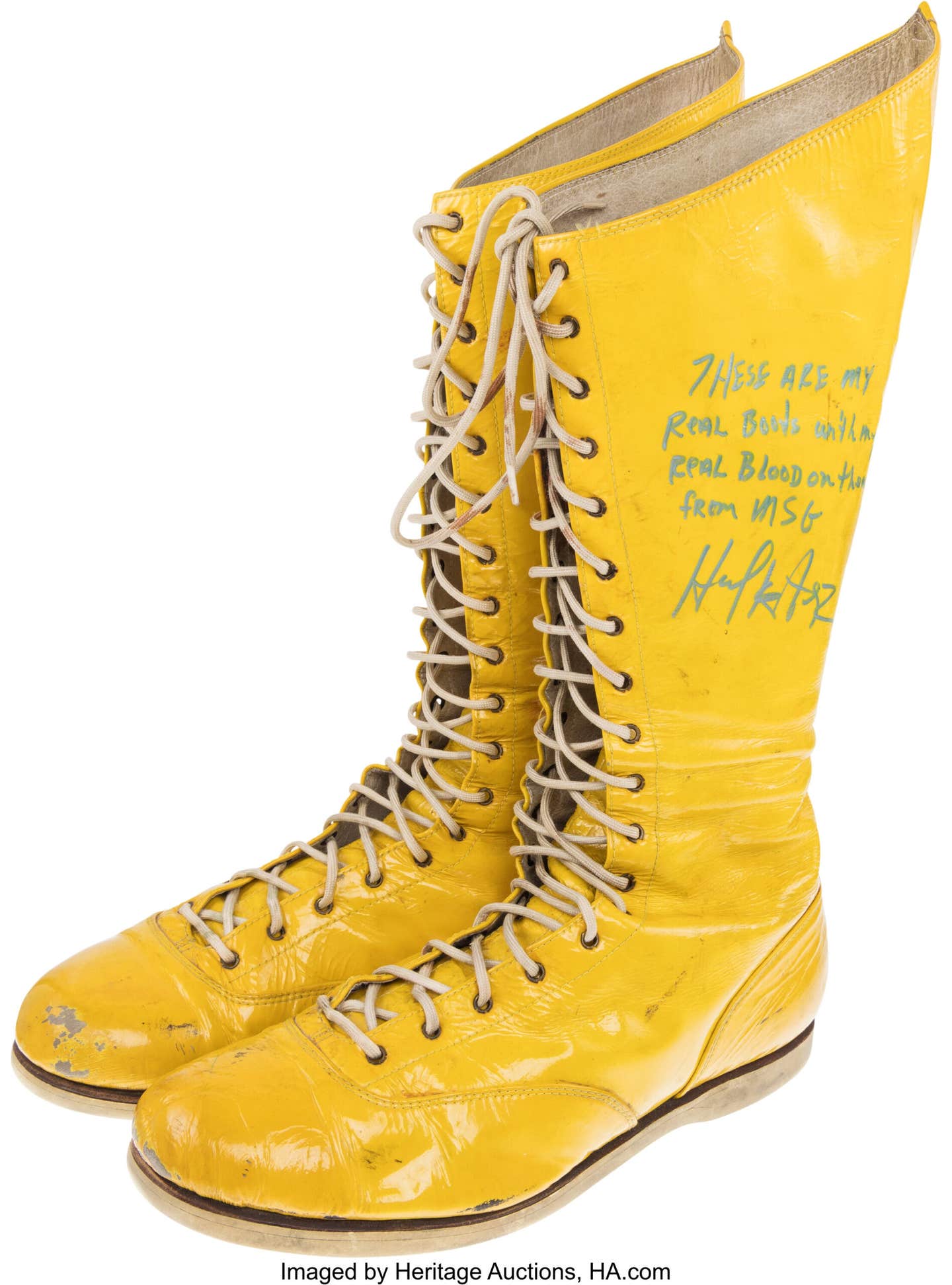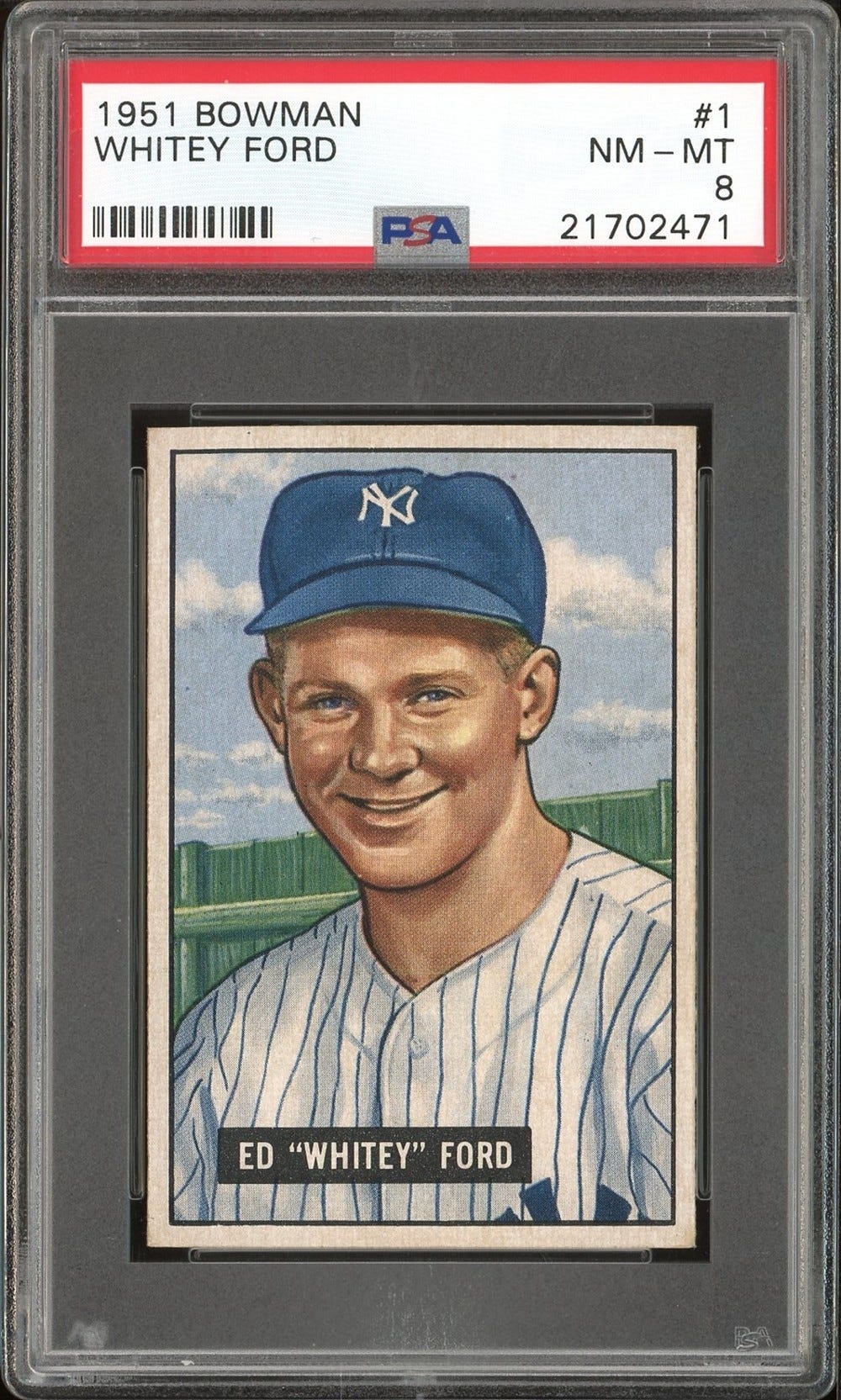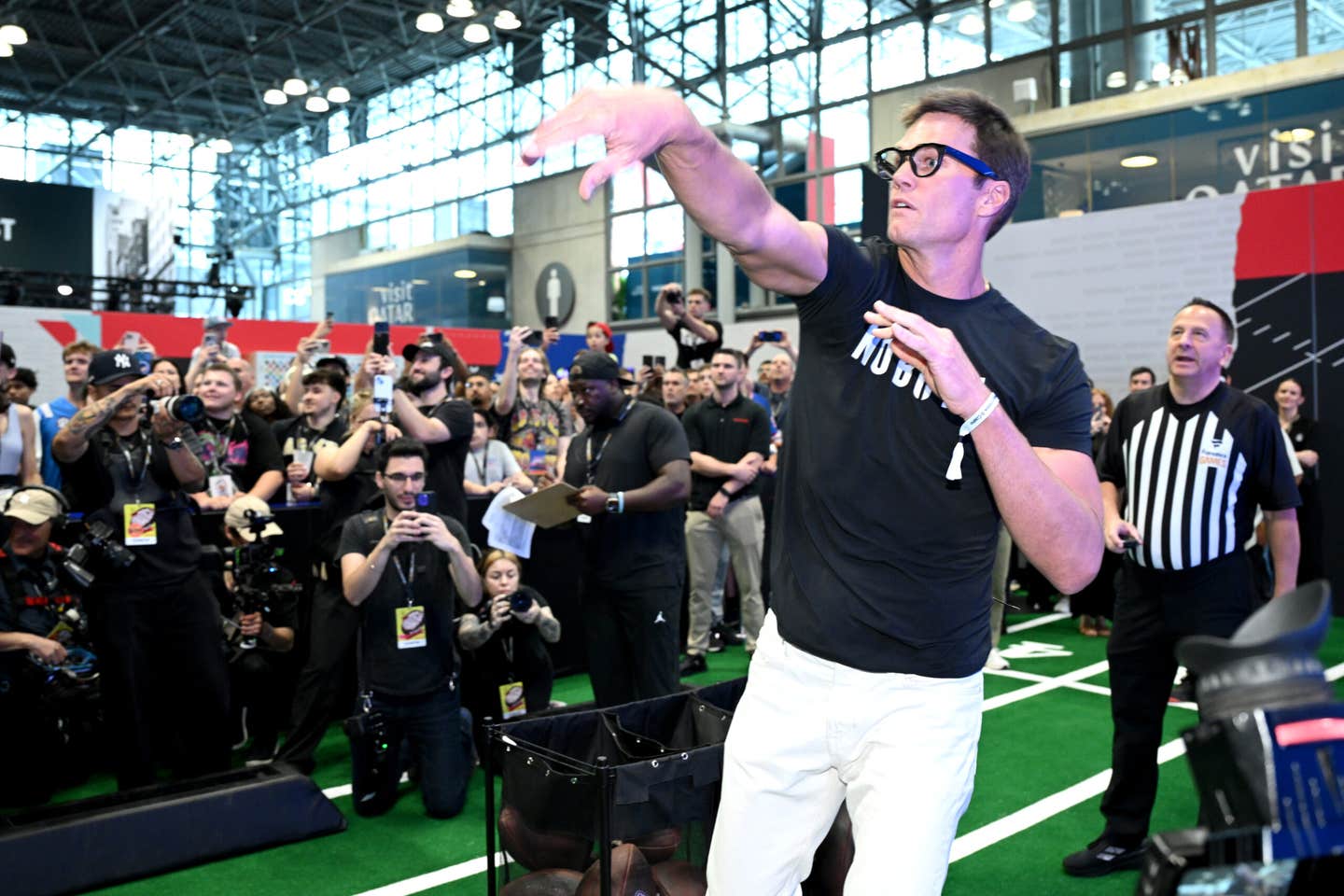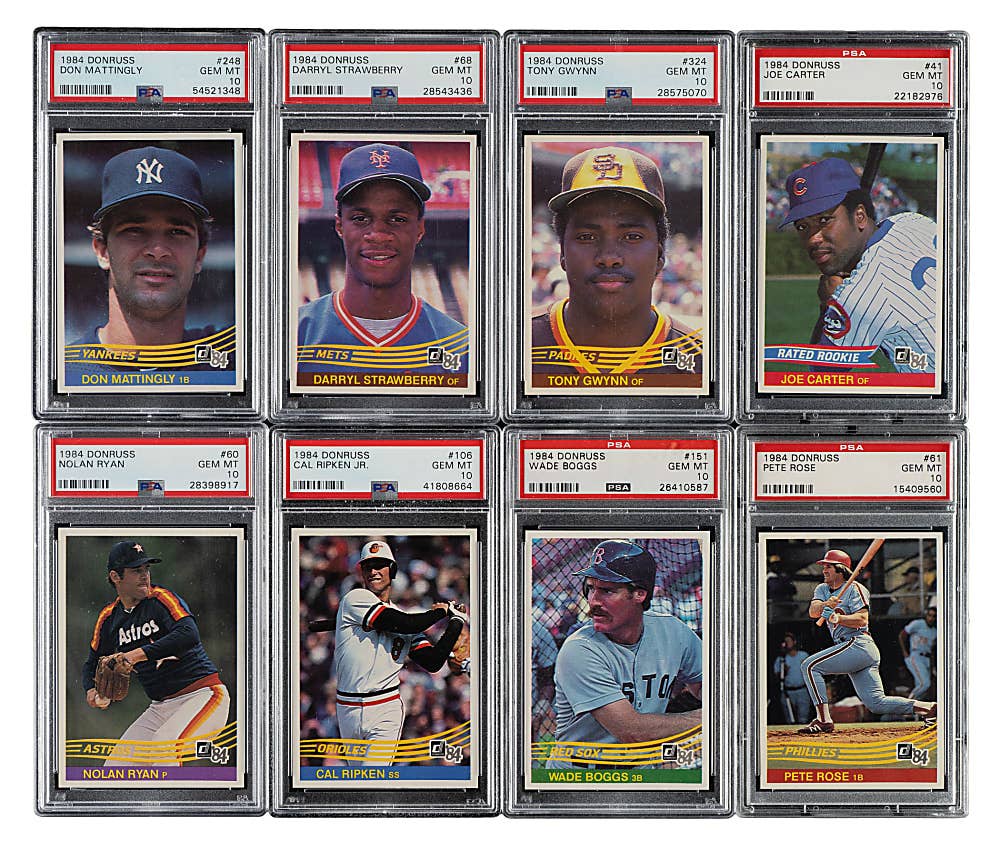Collecting 101
Lou Limmer: Tales of Jackie, Henry and Fidel; raci
Lou Limmer: I got out of the service in 1946 and went to work with my brother Ralph in the commercial refrigeration business in the Bronx. I was also playing sandlot baseball and a scout for the A's. George Halpren saw me and invited me to Philadelphia for a tryout.
I worked out with them for a week and one day I was in the batting cage and the regulars came out. This is why I love Sam Chapman so much. I was just out of the service and the regulars wanted to hit. One of their guys said,
"Come on, you bush SOB, get out of there. We got to hit." And Sam Chapman comes up and says, "Let the kid alone. I might learn something," because he was in a slump at the time and thought he might find something. And he let me hit for another 10 minutes. They were as mad as hell but he was my hero.
Connie Mack, who was 83 at the time and still owned the team and was the manager, watched it all from the stands at Shibe Park, and he called me up into the stands. He said, "Listen, young man" - I'm giving this to you slow, the way he talked - "Young man .... we like .... the way .... you play. And we'd like .... to have .... you join .... our organization."
I said, "Oh, Mr. Mack, that would be fantastic." And he said, "Well, we have a Double-A team and an A team and do you know what that is?" And I didn't know what that was. I was just out of the Army. I didn't know nothing. I wanted to go to the big leagues. He said, "Well, you're not good enough for that." He said, "We have a Double-A," and I said, "Okay, I'll go to Double-A." And he said, "Well, you have to learn a little more."
Then he said to me, "Do you want to be a star in D ball or do you want to be a so-so in Double-A?" I said, "I'll be a star in D."
The Phillies had given a couple of big bonuses a few weeks before, and I said to Mr. Mack - everybody called him Mr. Mack - I said, well, these other players got bonuses, and I think I deserve some more money, too.
Then he did his heart routine. He grabbed his heart and went, "Ugh, ugh .... we don't .... usually do that .... young man." When I saw him do that, I got scared. I thought he was going to die. I said, "Okay, okay Mr. Mack. I'll sign, I'll sign." Right away, he got better. "Go see Ira Thomas up in the office. He'll take care of you." But in the beginning, I thought he was going to die.
And when I finished with him, all the ballplayers later told me that was an act with this guy. He gave me a bonus of $200. That was the whole bonus. And he sent me to D ball for $300 a month. That was a lot of money down there then. It was usually $75 a month. But he gave me a bonus of $200 and I had to pay my own way on the bus home. And I cried all the way home.
When I left the park, the scout downstairs from the Braves, he said, "Hey Louie, I been watching you work out, how'd you make out?" I said, "Oh great, I signed." He said, "You mean to say the A's signed you?" I said,
"Yeah." He said, "What'd they give you?" And I told him what it was, and he pulled out a contract. And it had my name written on it. And I saw what it was and it had $10,000 on the contract. He wasn't supposed to be in the ballpark. You can't touch anybody in there if you were with another team. So when I finished, that's when he got me. And I cried all the way home. And I told my mother the same thing and she said, "You stupid ... " What do I know?
And that's how it started. It was a nice life. Except it's a lot different nowadays. My salary is their meal money. My highest salary was $7,500, and when I was sent down, they let me keep the same salary.
In 1949 in Lincoln, that's where I had my neck broken and they took care of my mother. It was my first year at Lincoln, and I had a pretty good year. I slid into the third baseman and the throw got away from him and the third baseman kicked me in the head and I broke my neck. I went blind for a couple of days. And my arms and legs didn't feel so hot. They wanted to drill holes in my head to hold weights, but I said, oh, no, so they put a collar under my chin and they put a weight in the back of my head. And it stretched out my neck. It made my jaw bones deteriorate a little bit, and every now and then they'll pop out of joint.
I took batting practice three weeks later, in my regular clothes. I didn't hit any out, but I could swing the bat. For a couple years, I couldn't hear myself breathe, and at times I had the headaches. Then they went away.
When I went to Lincoln, that's where I met Gene Budig, who was just a boy. He later became president of the American League. I didn't know him. He was just a kid asking for an autograph. That's where I signed a baseball for him.
He looked for me for over 20 years and tried to find me. He called me from New York and he told me what happened. I still haven't met him. We had an old-timers game at Kansas City, and he was supposed to be there and something came up and he couldn't make it. And then he became president of the American League and I was supposed to meet him and he got called away. It just was bashert (Yiddish, meaning destiny). We didn't get to see one another.
Then I went to St. Paul of the Class AAA American Association. The A's didn't have a Triple-A team. In 1950, or 1949, they wanted to send me to a Triple-A team, so they sent me to Buffalo. They had a working agreement with Buffalo. But Buffalo had a few first basemen, so they sent me back. That was the only time they sent me to Triple-A.
In 1950, the A's thought I was ready, but they wanted to make sure, so they had an agreement with the Dodgers to send me to St. Paul, which was in the Dodgers organization. And in 1950, of course, Jackie Robinson was there and Gil Hodges was coming in and, again, I can't remember his name, The Rifleman, Chuck Connors, was there. Afterward, they sold him to Chicago, but the A's didn't want to make any deals with the Dodgers, they wanted to keep me.
Danny Ozark was at St. Paul and the first day I went 5-for-5 and the next day he was gone. He was the first baseman the year before. In spring training, I also stayed with Jackie Robinson a little bit. That was an experience because in those days, you know, they still had the restrictions. In some hotels the Jews couldn't stay or in some other places the blacks couldn't drink water or they couldn't eat in restaurants. They had to go to other colored people's houses to eat. I went with him. I wasn't going to let him go alone. I might as well go.
And I'll tell you what. The food was a lot better there than at the hotel. He was a pretty nice guy, Jackie Robinson. He was very intense. Very intense. I don't remember much else about him, except it was a nice experience. We were in the same boat (as far as people being prejudiced against them).
My first experience with it (black prejudice) was when I was in the service in Biloxi, Miss. I played basketball with a colored fellow in high school and I was in basic training and I saw him and we broke ranks and hugged one another. We were just young kids, 18 years old, and this was somebody from home. Some guy said, "Blacks and whites don't mix. They stay separated." And that's the first I came across that prejudice.
The next time was when I got to Lexington, N.C., where on the signs they had, "Jews, Niggers and Dogs stay out." They were along the railroad tracks and some of the roads. "Jews, Niggers and Dogs stay out." And when we traveled in Florida, some of the roads on some of the buses and they would have signs, "Jews and Niggers aren't allowed."
You're darn right it was worse for the blacks. But we had some of that experience, too. In Lincoln, my wife was sitting with a couple of ballplayers' wives who were looking at her. She said, "What are you looking at?" The wives said, "You're Jewish." My wife said, "Would you like to see my head? There are no horns." And she had to show them her head. These wives had been to college, too. That's what it was like in those days.
We almost got a group together to play exhibition games in Israel. We didn't have enough Jewish players, so we also had some blacks and filled in with Jewish-sounding names, such as Les Musselman. Cy Block got a couple of them and the blacks got their guys together, but something happened, and we couldn't do it. We ended up going to the Caribbean.
I've been to Puerto Rico, Panama, Cuba and Venezuela, and there was fighting going on in each place. My first year in Puerto Rico, in 1949, was the year Pedro Albizu Campos wanted to take over Puerto Rico. He didn't want it to become a state, part of the United States. He wanted to keep it separated. And they were having a civil war.
One day, this soldier from the government in this gray uniform with a machine gun stands in front of the cab we were taking and the cab driver steps on the brakes and stops. And this soldier has got a machine gun in his hand and he's ready to shoot anybody that goes by, and he sticks his machine gun inside the back of the car. He says, "Que passa?" And I didn't know Spanish at the time - maybe a little bit - and the driver says, "Peloteros, peloteros, baseball players. Leave them alone."
And Cy Block - he's the guy who got everybody together - right away, he says, "We're amigos, amigos. My name is Don Jose Rodriguez ... Block." In his best Spanish, and everybody says, "Please be quiet, you're going to get us killed." Because the barrel of that gun looked like a cannon.
And the officer says to the cab driver, "I want you to do me a favor." The cab driver said, "What's that?" He said, "If I die, I want you to come to my funeral." He thought he was going to kill him. He was such a nice guy. When he said you can go, the cab driver didn't go slowly. He stepped on the gas and he flattened us against the wall. He took off quick.
We got to San Juan and we had a ballgame that day. And Nestor Chylak was the umpire. And with all the trouble going on, he said, "Now, you guys be careful."
The first inning was over and the second inning was over and somebody throws a fire cracker from the stands onto the field and Chylak jumps out in front of the plate and yells, "Game called." And everybody ran off the field. All the ballplayers ran away.
I was playing with Toronto at the time, 1955, and Castro was starting to come into power (in Cuba). I think in 1956 or 1957 he took over (actually, it was Jan. 1, 1959). We'd have batting practice in Havana, because Havana was one of the teams in the International league, and Castro would come down and work out in the infield. He'd catch and he'd play shortstop and he'd pitch. He wasn't too bad.
Listen, you play 12 months of the year in all these Latin American countries, you've got to know how to play baseball. Everybody plays. He wasn't bad. He was a ballplayer. Everyone was his friend. We went to his hacienda, we ate, we got to be friends. After the season, that was it. I never saw Castro again. Then it got to be a little tough. I think it was Batista he knocked down. And after that, that was the end. We never mentioned his name. Until later on, I met some people who had to leave Cuba at my brother's house and these people were there visiting and when I had mentioned that I knew Castro and we were friends, they took a dislike to me and I thought they were going to kill me.
Then, of course, there was Panama, and they were trying to kick the United States out of Panama and the canal and wanted to take over the treaty they had. And in Venezuela, it was the same thing with the soldiers.
One year, in 1956 - just before my wife joined me in 1957 - New Year's, they were having their uprisings. The ballplayers were having their New Year's party at the hotel and the soldiers came up and beat the hell out of their wives. They wouldn't touch the ballplayers because they were peloteros, they were ballplayers. That was their pleasure.
* * * * *
I was the Rookie of the Year in St. Paul and I hit only one home run in my own ballpark. The right field fence was 378 feet away. And it had a big high fence. The only home run I hit was over the clock and was about 450 feet. In centerfield, they had an advertisement. And on the advertisement was white. There were black letters, but it was white. From a right-handed pitcher, it came right out of the white. I couldn't pick up the ball.
In the nighttime, I'd go out there and paint the fence. And the next day it would be black and I'd be okay, and they'd put that sign up again. And every time they'd put it up, I'd paint it. And finally, they caught me and said, "You'd better not do it anymore." I painted that fence. I hit 28 home runs on the road and one at home.
I knew I was going to be with the Athletics in 1951, but I got there at the wrong time. Ferris Fain led the league in 1951 and in 1952. In 1952, they sent me back to the minors because I was the worst pinch hitter in the world. I hit .159. But I knew I was a better hitter than that. And they knew it. In 1952 and 1953, I was in the minors and in 1954 I got back.
At that time, a ballplayer to get to the major leagues was 1,000 to none. To none. They had the reserve clause and if you didn't like it, you could get a lunch bucket. Go ahead and complain. DiMaggio held out for half a year.
Yep, 400 (major league) ballplayers, that's all there were. And it was a 1,000 to none to get there. And I got there. My biggest salary was $7,500 in the big leagues. When they sent me down from the big leagues to the minors, I got the same salary. They didn't give me any less.
I got along with most of the umpires. There was this one, Joe Paparella, he was a nice guy. We had a game in Detroit and Saul Rogovin was pitching and Joe Ginsberg was catching. I came up to pinch hit. So Paparella comes from behind home plate and he dusts it off and he says, "Boy, now I've got the three Hebes. I wonder who's going to win the battle?"
And Rogovin throws the first pitch and I hit it into the stands and I round the bases and Paparella says, "I guess you're the winner, Lou." It so happens, I wasn't (the winner) because Joe Ginsberg stayed with Detroit and Saul Rogovin went to the White Sox that year and he led the league in ERA and poor Lou Limmer, he got shipped to the minors.
This was in Detroit. What a beautiful ballpark they had. Paparella was a good guy. He always told that story about two Jewish guys at home plate. He was good to me. He never struck me out. He never called me out. He used to call me an SOB. "Damn it, swing at the ball. Swing the bat."
And in the field, when there'd be a close play at first base, I'd say, "Hey, Joe, make me look good." And he'd say, "Go ahead (and argue)." He'd say, "That's enough." He was a real nice guy, that Joe Paparella. May he rest in peace.
Other umpires, not that they were good or bad, but they put me in my place right away. We were in Yankee Stadium and, geeze, Cal Hubbard, what a monster. He played football. He was an All-American football player. He's in the pro football and pro baseball halls of fame, by the way.
Anyway, Vic Rashi is pitching that day. And the first pitch is up here and he says, "Strike one." And I said, "Gee, that looked a little high, Mr. Hubbard." And he says, "Well, okay, now get in there and hit, bush."
The next pitch is right down the middle. You couldn't put it any better. And he says, "Ball one." And Yogi Berra jumps up and says that pitch was right down there and blah, blah, blah, blah. And Berra walks out to console the pitcher and the umpire comes out in front of the plate. And he says, "You see that young man? I just wanted to let you know who's the boss. Now, you're on your own."
The next pitch, I hit a home run. The next day , I come up to the plate and Berra says, "Hey, bush, you feeling pretty good?" And I'm standing at the plate, and he throws dirt on my shoe. And I say, "Hey, Yogi, cut it out, will ya." And I step in the box, and he throws dirt on me again. And I said to the umpire, "Hey, he's throwing dirt on my shoe." He said, "Shut up and get up there and hit, bush." I was a rookie. And I hit into a double play.
Another game, we were playing in Cleveland and Early Wynn was pitching. The inning before, I got a hit. I come up again and Jimmy Dykes puts on the bunt sign. I square around to bunt and Wynn throws the ball right square in the middle of my chest. I thought he was going to kill me. The hat flew one way and the bat another. Okay, he knocked me down. I got a base hit the last time.
Alright. I square to bunt a second time and Wynn did the same thing. Right smack dab in the center of my chest. And everything went flying. And when he did it the third time, the same thing. I got up and said to the umpire, "He's going to kill me." And the umpire said, "Yeah."
I used to crowd the plate. And I went as far back in the box as you could get and I put the bat on my shoulder and I didn't even move it. And Wynn struck me out, one, two, three. And I walked back to the dugout, and Dykes said, "How come you didn't bunt?" And I said, "That SOB would have killed me." He says, "Yep." And he would have. Cause I got a base hit and knocked in two runs and I was a rookie. Today, everybody gets thrown out of the ballpark if you throw at a batter.
I might have played more, but they put Ferris Fain in the outfield with Elmer Valo in Detroit and they almost ran together. So manager Jimmy Dykes put me back on the bench because, "I can't afford to lose two ballplayers. I'd rather lose one as opposed to two."
The worst anti-Semite was (pitcher) Joe Coleman and (outfielder) Dave Philley. They were both pretty good anti-Semites. Some of the people I knew from the A's used to tell me all the things that were going on behind my back. Fain wasn't too good a one, either, although I was taking his job.
When it comes to Jewish ballplayers, I don't care what team you're on, somewhere along the line there's anti-Semitism. If you're a good ballplayer, they leave you alone. When the 1954 season came along, I was one of the best. Allie Clark was the one that took care of me when Dave Philley gave me a hard time. I wanted to challenge him (Philley) and Clark says, wait, "You're still a bush. You're still a rookie. I'll help you."
He told Philley to leave the kid alone, he's just a rookie. They got to talking back and forth and saying things to one an other and they got to pushing and Clark decked him. He knocked him on his fanny. Since then, Philley never bothered me. That was it.
No one ever really bothered me. I got along pretty good. All the fellows used to do their crossword puzzles and they'd run into a problem and they'd say, "Go see the Hebe. Go see the Hebe. He'll tell you." I was their father superior. I was their advisor. I didn't know from nothing, but they sent them to me. Jews were supposed to know everything. Good, let them think that.
In 1954 they (the A's) had Don Bollweg at first. He came from the Yankees. I'd pinch hit in a game here and there. I wasn't getting to play at all. And only because he came from the Yankees. He was hitting a resounding .125. So they put me in and I hit .300 from June on. And I don't know if I led the team or tied for home runs (he hit 14 in 316 at-bats, tying Gus Zernial, who also had 14 and one behind team leader Bill Wilson).
That's the year Gus Zernial broke his collar bone and the fans applauded. Tough fans, but they know what they're talking about. At the end of the season, he (Eddie Joost) said, "I'm sorry for not playing you." I said, "Thanks a lot." And that was the end. I got the last (Philadelphia A's) home run, that was in Yankee Stadium. And then I got the last base hit (on Sept. 26, pinch-hitting in the ninth for Vic Power). I had no idea. I didn't find out until years later when I heard it on the radio.
I thought I'd be back in the big leagues the next year, and I was done after that. When contracts were sent out, (new manager) Lou Boudreau sent me a telegram that said bring an outfielder's glove. When he said bring an outfielder's glove, I said, that's it, good-bye Charlie, I was done. I was a first baseman. I was sent to Class AAA Columbus, where the A's had a working agreement.
Rumor was I was going to be traded to Boston, so Columbus sent me to Louisville, a Red Sox farm club. But the deal fell through, so after two weeks, Louisville tried to send me back to Columbus, which was a Pittsburgh farm club, and they didn't want me, so for two weeks, I did nothing.
Finally, Jack Kent Cook of Toronto bought me. And when we went back to Columbus to play, I think Nick Cullop (the manager) didn't like me so good because I kept asking him how come you're not bringing me back (to Columbus)? I don't think he liked me.
Anyway, it so happened a confrontation broke out. The pitcher and the batter who was up, and, of course, ballplayers come out and Nick Cullop went around the outside and he blindsided me. He knocked me right on my fanny. I mean he hit me good. And then the fight broke out.
The next day when I played, I hit one off the wall. I didn't go to second base. I stopped at first. And I told Spook Jacobs (the Columbus second baseman and a Limmer friend from their days with the A's) I was going to steal. Spook Jacobs is one of my best friends now, but I stole second and that poor kid, I knocked him into left field. And right after that the fight started, and he was bloody and Dutch Romberger - he's the one who hit me on the top of the head and broke his thumb - and only one ballplayer from Toronto came out to help me, and he just stood around and looked. I don't know what it was, but they worried about themselves.
The following day there was another confrontation at home with Lou Berberet. And everybody ran out and the (Toronto) ballplayers sat on the bench. And I didn't play that night. Luke Sewell was the manager. He said, "You SOBs, go out and help." And nobody did.
I went to Birmingham in the Southern Association in 1958. In Birmingham, I helped pay for my kid's bar mitzvah. If you hit a home run in the playoffs, especially, they'd give you a $50 bond. And I hit 12 home runs. And they gave you a radio, too.
In fact, Ray Mummy was on the team we beat for the championship in the Dixie World Series and I gave almost everybody on the team a radio. I kept two for myself. When they gave something out for a home run, I was lucky enough to hit it.
In 1959 they wanted me to go to the West Coast and manage and play on the West Coast for the Detroit organization. I said, no, that's it. Besides, my kids were 6 and 5 years old at the time and my wife said it's time and my brother promised me I'd be a partner in his refrigeration business. And when I got home, he got married and got into a partnership with his father-in-law and his brother-in-law. I worked for my brother and I was going broke. So I went into competition with him after that.
I played with a guy in the minors - the kid was a catcher - who never got to the big leagues. I didn't know he was Jewish until later, and he knew I was Jewish, but never said anything to me. That bothered me.
As for the holidays, I wouldn't play on Yom Kippur, but at that time, baseball season often ended before Yom Kippur started. In my time, there was a 154-game schedule. Doubleheaders on Sunday and you didn't play Monday. So you finished Sept. 24, 25, that was the end. Now, it goes right to the first week in November.
The best players I saw? Joe DiMaggio. What an outfielder. What a hitter. Ted Williams. He was the greatest. And he was a good outfielder. They used to knock h im, but he was a good outfielder. And Stan Musial. He was fantastic. I played against Mickey Mantle a little bit. He was a good one. And Chico Carrasquel at shortstop. He should be in the Hall of Fame before Phil Rizzuto. And Luis Aparicio was the greatest.
Hank Aaron, I remember him when he was in the Sally League, a second baseman. I thought he was Jewish. With a name like Hank Aaron? Oh, sure. He was a hell of a player.
I watch games on television. Today, I don't think any of them know anything about basics. The only guy I thought that really put out with today's salaries was Dave Winfield. He put out. And the one who was a big disappointment to me was Ken Holtzman. He won 20 games and was looking for a big contract. He got the big contract, and he went right down the drain. To me, he didn't put out. But Dave Winfield, he put out.
I knew the other Jewish players. In New York, there was Cy Block and there was Mickey Rutner and Cal Abrams and Sid Gordon and Sol Rogovin. There were six of us. We knew one another. We talked, we got together. Mickey's in Arizona. Cal Abrams' wife lives in Florida. Bobby Shantz (a non-Jewish roommate from the A's), I hear from him.
All the old A's, I see them on old-timer's day in October. The A's Society, it's like a cousin's club. You play in a lot of ballparks and they forget you. With the A's, everybody knows you. Everybody seems to like you. And you're a hero. You're actually a hero. They may forget your name, and they say, oh, yeah, I remember you. They never forget you. But the other 400 players, they forget you in those other cities. When it comes to the A's, it's a big deal. And the ones that passed away, they're always mentioned. Somewhere along the line, their name comes up. They're not forgotten. The A's are the only society that is as large as it is.
I was going to the last reunion, but my arm swelled up, double. Oh, that hurt. I got more phone calls and e-mails. "What happened?" Every other day I'll get a baseball card to autograph.
After I retired from the game, the only time I went to baseball (games) is when Mel Allen (voice of the Yankees) used to get me tickets to the World Series. I hardly ever went. I didn't want to go. I didn't care for it.
Shawn Green played for Toronto and this friend of mine tried to take him under his wing. And Green wasn't interested. And he wasn't playing, either. And he didn't know why. And my friend said he could help him. And he sent a letter to the team and said we have a big Jewish population and what do you know, Shawn Green got into the lineup.
They should get Pete Rose in the Hall of Fame. He did his business on the field. Get him in. He's got to be in there. But the old heads - Bob Feller - they don't want him in. Barry Bonds, let him take all the steroids he wants. How many guys are going to hit 500 home runs? There's got to be coordination.
Why are there so many Jewish ballplayers today? Besides money, in our religion, you have to have an education. Now, you go to college, you're playing football, you're playing baseball, you're playing basketball. You get a scholarship. If you're good enough, that's another feather in your cap. Instead of being a doctor, I can make a million dollars. You're going to see more Jewish ballplayers. Because they have their education. They have something to fall back on. My mother and father used to say, "Think of the good times, don't think of the bad times."
Like I said, I enjoyed it all.



